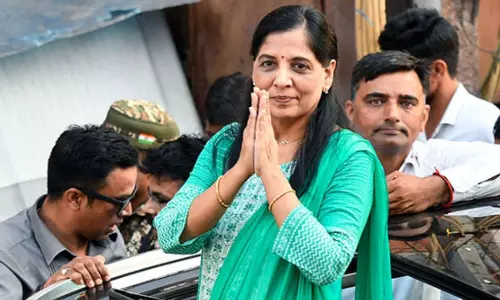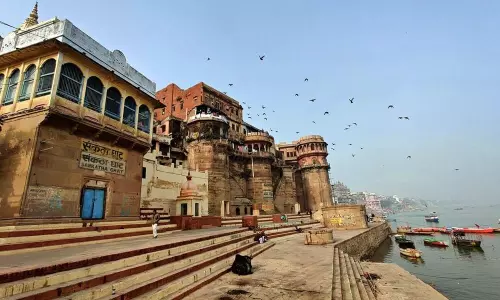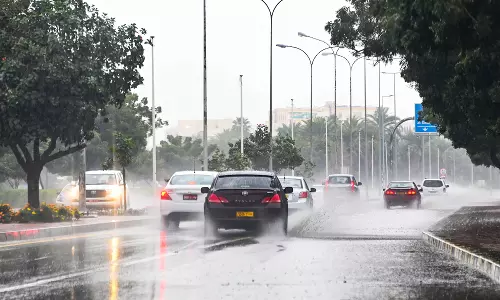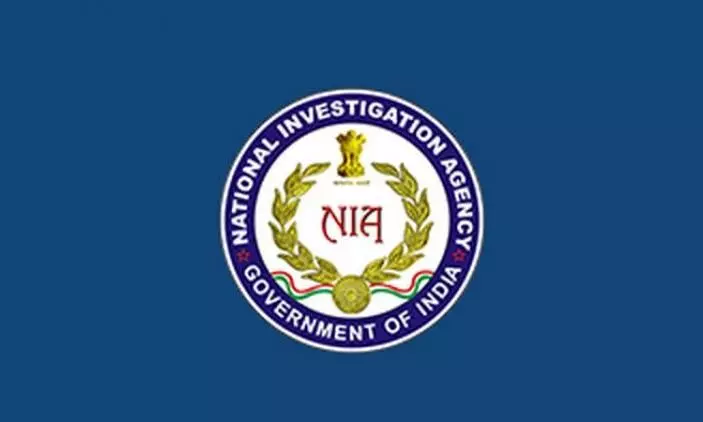
Points to ponder before the Al-Qaeda hunt
text_fieldsNine individuals nabbed by National Investigation Agency (NIA) from Kerala and West Bengal, on allegations of Al-Qaeda links are being interrogated in Delhi. Even before any official explanations about it have emerged from NIA, mainstream and social media are flooded with speculative, even detective, stories about the arrested. In the new context again, stories are doing the rounds with hackneyed campaigns and disproven allegations revolving round themes like Islamic extremism, infiltration from Bangladesh, import of weapons from Pakistan and links with Kashmiri secessionists, many of them dismissed even by the very investigating agencies. Despite the fact that NIA has been proven as an agency functioning in line with the wishes and communal predilections of the central government, the nascent mission of the agency has not faced much suspicions or counter questions. In the bustle of celebrating the Al-Qaeda hunt and Islamic terrorism on the back of a public consciousness set up by the mainstream media and certain political movements, such questions are more ignored than addressed.
It is not a contention that can easily be dismissed that as it happened in several other cases investigated by NIA in Kerala itself, the current Al-Qaeda chase too is wrapped in mystery. The raids conducted by NIA in three locations in Ernakulam district and in Murishidabad, West Bengal simultaneously, were based on a case registered in Delhi on 11 September. The version put out is that the arrested had been planning terrorist attacks in four cities including Delhi. The ones nabbed in Kerala are labourers from West Bengal. One of them has been working here for the last ten years and living with his family. The local population or people who know them have not noticed anything suspicious about them. Like many guest workers from north India, who know the social and economic ambience of Kerala for something different from their native lands, they have been making a living in the state as porotta maker, sales staff in textile shops and in construction labour. The reasons stated for suspecting them are that they use laptop and mobile phones in mysterious circumstances, they do not attend duty on all days and so on. It is reported that the raid had unearthed leaflets inspiring terrorist activities, substances to make indigenous bombs and locally made protective shields. They also are said to have been planning attacks on Cochin Shipyard and military locations in the state. The pieces put together simply do not add up. In other words, the arrests and terror labelling are done citing suspicions that can be levelled against any individual.
If all these allegations are true, those 'terrorists' really deserve pity. It does not take a genius to understand that a gang venturing out to take on one of the strongest military forces in the world, and a robust intelligence machinery with a few local bombs and indigenous protective shields, cannot create even ripple of unrest. That is precisely what forces every one to disbelieve the NIA who raised such charges and the media that follow them. Also, when tracing the evolution of similar media ado in the past in Kerala itself about what is dubbed as Islamic extremism, one will be prompted to dismiss the official explanations about the clamp down. Keralites have in front of them the outcome of several such cases in various epithets like Love Jihad, terrorist recruitment to Kashmir, clandestine camps of SIMI in Panayikkulam and IS recruitment.
What emerged from the judiciary and sometimes even from investigating agencies later is that the circulated narratives were all sangh parivar-sponsored fiction using news media. The Centre itself has rejected a UN report stating that Kerala has an IS presence. Still there is no dearth of research treatises about Islamic terrorism. Even when there is not an iota of truth in such arguments, the running theme of this body of 'anti-terror' literature is that Kerala has turned into a hub of Islamic extremism, and that sleeping cells are active in different parts of the state which can explode anytime. And to add spice to that narrative, there will follow statements from the national and state leaders of the sangh parivar outfits. Now the situation in Kerala also prompts a doubt if the the state's leading ruling party has also fallen into the trap of the sangh parivar that is vowed to keep Islamophobia alive. For, it is not for nothing that the ruling party's organ also takes credit for the operation saying that the recent raids were conducted with the cooperation of the state home ministry. The Opposition is not far behind. They too lend their mite by making the TV debate studios active, and blame the government for 'harbouring terrorists' in the state. In the middle of all this din of arguments, what will be the fate of the Al-Qaeda pursuit that came like a tornado?























